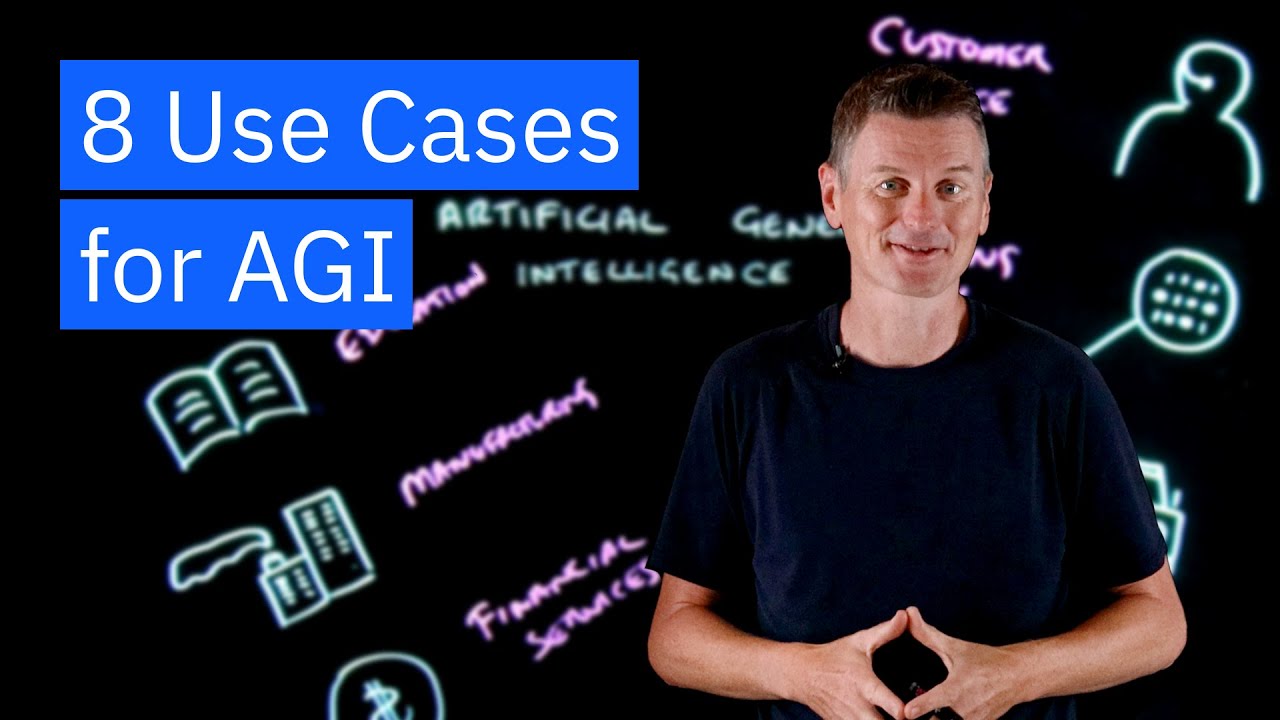The video explores eight potential use cases for Artificial General Intelligence (AGI), highlighting its transformative impact on sectors such as customer service, coding, transportation, and healthcare. It emphasizes the need for advancements in current AI systems to achieve AGI’s capabilities, which could lead to significant improvements in personalized services, efficiency, and innovation across various industries.
The video discusses the concept of Artificial General Intelligence (AGI), a theoretical form of AI that could match or exceed human cognitive abilities across various tasks. While AGI does not currently exist and remains a topic of science fiction, many AI labs are optimistic about its eventual development. The video explores eight potential use cases for AGI, illustrating how its implementation could transform various sectors and highlighting the improvements needed in current AI systems to achieve these capabilities.
The first use case examined is customer service, where AGI could revolutionize the experience by leveraging vast amounts of customer data and real-time analytics. This would allow AGI to provide personalized service, anticipate customer needs, and adapt its communication style based on emotional intelligence. Such advancements would significantly enhance customer interactions compared to today’s automated systems, which often lack empathy and contextual understanding.
Next, the video discusses the impact of AGI on coding intelligence. An AGI system would possess a deep understanding of existing codebases, enabling it to suggest improvements and generate new code based on human specifications. This would streamline the coding process, allowing programmers to focus on optimization and integration rather than starting from scratch. The potential for AGI to enhance software development is significant, as it could lead to more efficient and effective coding practices.
The video also explores how AGI could transform autonomous vehicles and transportation. Unlike current systems that rely heavily on pre-programmed maps and sensors, AGI would understand its environment, analyze real-time data, and anticipate changes, such as sudden weather events or unexpected obstacles. This capability would enhance safety and navigation, making autonomous vehicles more reliable and efficient in real-world scenarios.
In healthcare, AGI could analyze vast amounts of medical data to identify patterns and tailor treatment plans for patients, leading to more effective therapies. The video emphasizes that for AGI to become a reality, current AI systems need to improve in areas such as visual and audio perception, problem-solving, and emotional intelligence. The remaining use cases discussed include personalized education, optimized manufacturing processes, advanced financial services, and accelerated research and development, all of which could benefit immensely from the capabilities of AGI. The video concludes by encouraging viewers to consider the implications of AGI and its potential to reshape various industries. Want to play with the technology yourself? Explore our interactive demo → watsonx.ai Interactive Demo
Learn more about the technology → IBM watsonx.ai
